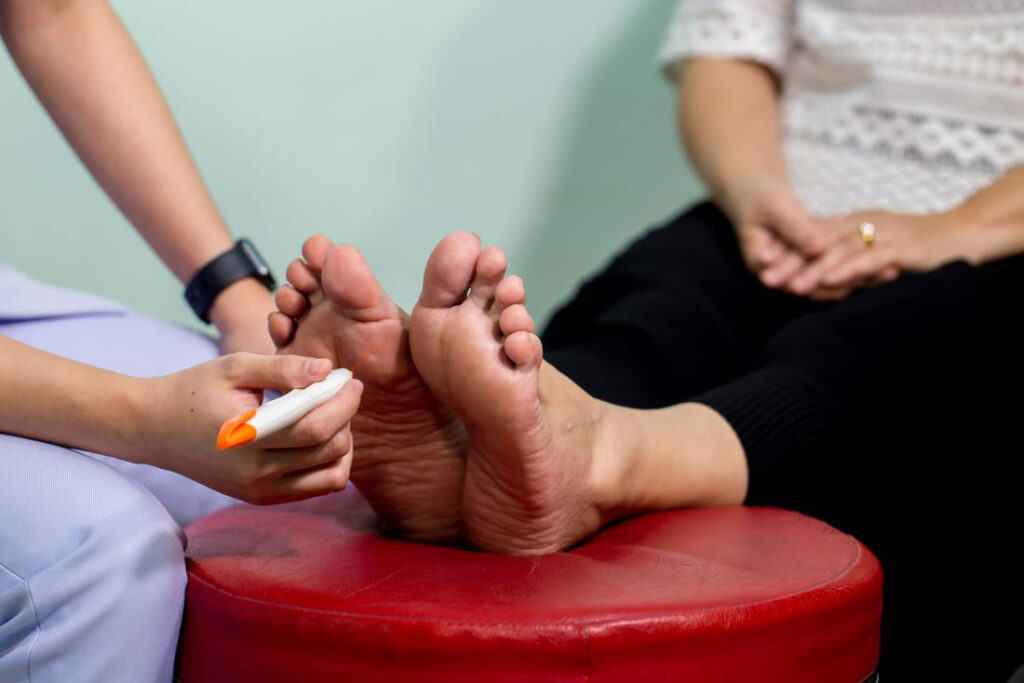
Diabetic Neuropathy : Everything you need to know
Diabetic Neuropathy influences between 33% and a portion of individuals experiencing diabetes. This is the most widely recognized complication of diabetes mellitus (DM), influencing patients with type 1 and type 2 diabetes.
Diabetic neuropathy damages the nerves, which are fundamental for bodywork. Nerves enable us to move, send messages to the brain about senses, and control automatic capabilities, like breathing. Consistent high sugar levels can harm the nerves all through the body generally the legs and feet.
The symptoms of diabetic neuropathy rely upon the impacted nerves. These normally range from agony and deadness in your legs and feet to issues with your stomach-related framework, urinary plot, blood vessels, and heart. You might encounter mild symptoms. Be that as it may, for other people, these symptoms can be very agonizing and crippling. However, it is a significant complication, you can prevent diabetic neuropathy or slow its progression with the management of consistent blood sugar and a healthy lifestyle.
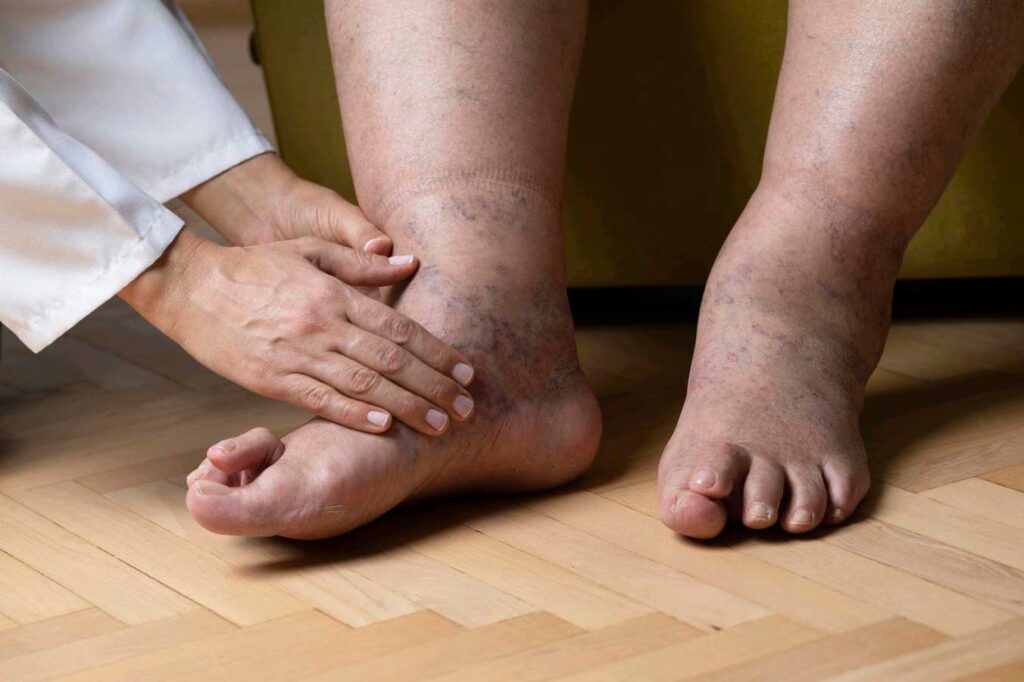
What Causes Diabetic Neuropathy?
Constant high blood sugar levels over a long period result in the development of diabetic neuropathy. However, some other factors may also lead to nerve damage, such as :-
- High cholesterol levels cause damage to the blood vessels.
- A mechanical injury like injuries from carpal tunnel syndrome.
- Lifestyle factors, like smoking or alcohol abuse.
- Vitamin deficiencies such as low levels of vitamin B-12.
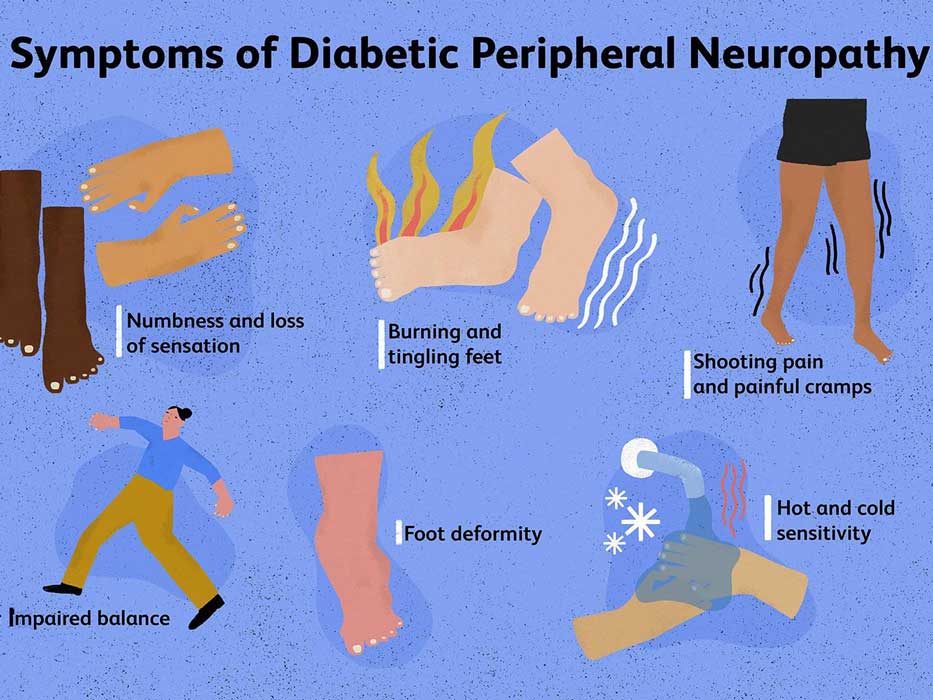
Nerve damage because of diabetes can create issues with equilibrium and coordination, prompting falls and fractures. The nerve damage can likewise cause chronic pain bringing about anxiety and depression.
You are more likely to develop neuropathy from continued high sugar along with :-
- Overweight
- High blood pressure
- High cholesterol
- Advanced kidney disease
- Drink too many alcoholic drinks
- Smoke
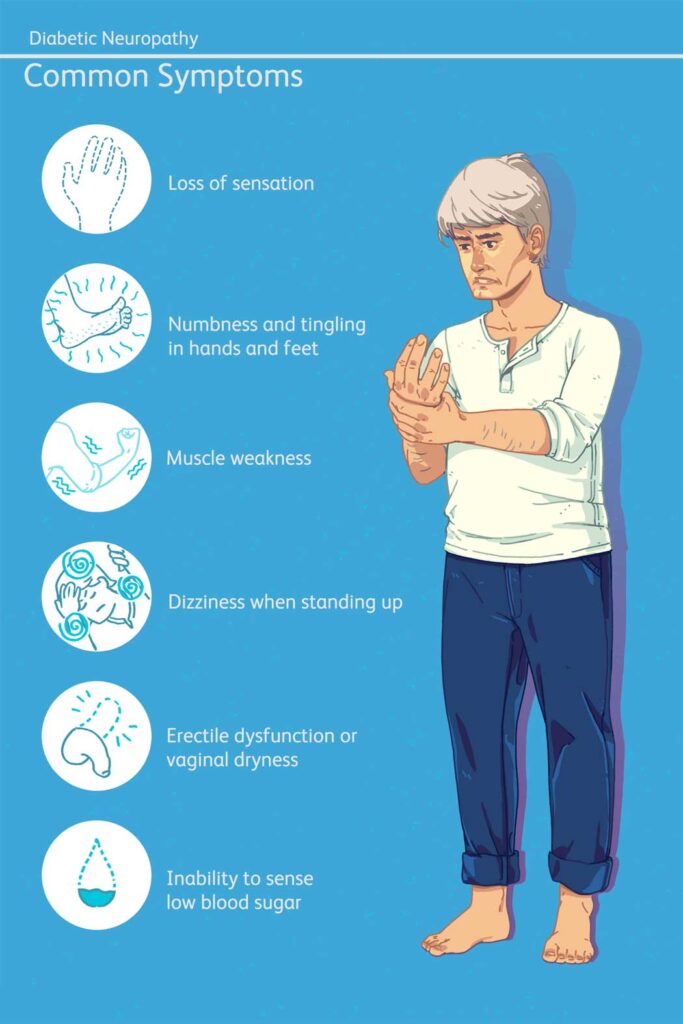
What are the Symptoms of Diabetic Neuropathy?
The symptoms would rely upon the type of diabetic neuropathy you have been diagnosed to have. Some of the common symptoms include numbness, tingling, pain, or weakness, particularly in your hands or feet. The condition is severe when you can’t feel pain and an ulcer that creates on your foot.
1. Peripheral Neuropathy :- This is nerve damage that usually affects the feet and legs and rarely the arms, abdomen, and back. The early symptoms might get better when blood sugar is under control The symptoms would include :-
- Tingling
- Numbness that may become permanent
- Burning sensation especially in the evening
- Pain
This can lead to foot complications, like sores, ulcers, and infections, as nerve damage can make you lose feeling in your feet. Rarely, people with peripheral neuropathy may develop Charcot’s joint, in which a joint breaks down because of nerve issues, often in the feet. The condition might worsen when you are not able to feel heat, cold, or injury.
2. Autonomic Neuropathy :- This occurs when there is damage to nerves that control your internal organs, causing problems with your blood pressure and heart rate, digestive system, bladder, sweat glands, sex organs, and eyes. The symptoms include :-
- Bloating
- Diarrhea
- Constipation
- Heartburn
- Nausea
- Vomiting
- Feeling full after small meals
- Low blood pressure
- Dizziness
- Faster Heartbeat
- Blacking out if you stand quickly
- Trouble emptying your bladder
- Bloating
- Incontinence (leaking urine)
- More bathroom trips at night
- Men not able to have or keep an erection
- Men having “dry” or reduced ejaculations
- Women having less vaginal lubrication
- Women having fewer or no orgasms
3. Proximal Neuropathy : You may experience pain, usually on one side, in the thighs, hips, or buttocks. This can also lead to weakness in the legs and might rarely spread to another side. This is a rare and disabling type of nerve damage.
4. Focal Neuropathy : This will cause damage to single nerves, usually in your hand, head, torso, or leg. Entrapment syndromes, such as carpal tunnel syndrome is the most common type. The symptoms include :
- Double vision
- Eye pain
- Bell’s palsy, which is paralysis on one side of the face
- Severe pain in the lower back or leg(s)
- Chest or belly pain
Sometimes the pain in the chest or belly is mistaken for another condition, such as heart attack or appendicitis.
How can Diabetic Neuropathy be diagnosed?
The endocrinologist or physicians would carry out a physical exam and foot exam to check for :-
- Ankle reflexes
- Loss of sensation
- Changes in skin texture
- Changes in skin color
Below tests help in determining the extent of nerve damage. The doctor may also order tests to check for blood pressure and fluctuations in heart rate along with other imaging tests such as :-
- Electromyogram (EMG – To record electrical activity in the muscles.
- Nerve conduction velocity test (NCV) – To record the speed at which induced signals pass through the nerves.
How can Diabetic Neuropathy be treated?
Diabetic neuropathy would worsen over time if the blood sugar level is not controlled. The initial focus is to bring blood sugars within a target range and manage high blood pressure and cholesterol levels.
Managing appropriate glucose levels will reduce the risk of diabetic neuropathy, which is the key part of treatment. The second step is to avoid any complications with the help of lifestyle changes. Diabetic neuropathy can lead to several high-risk complications. These range from heart rate changes to even visual disturbances.
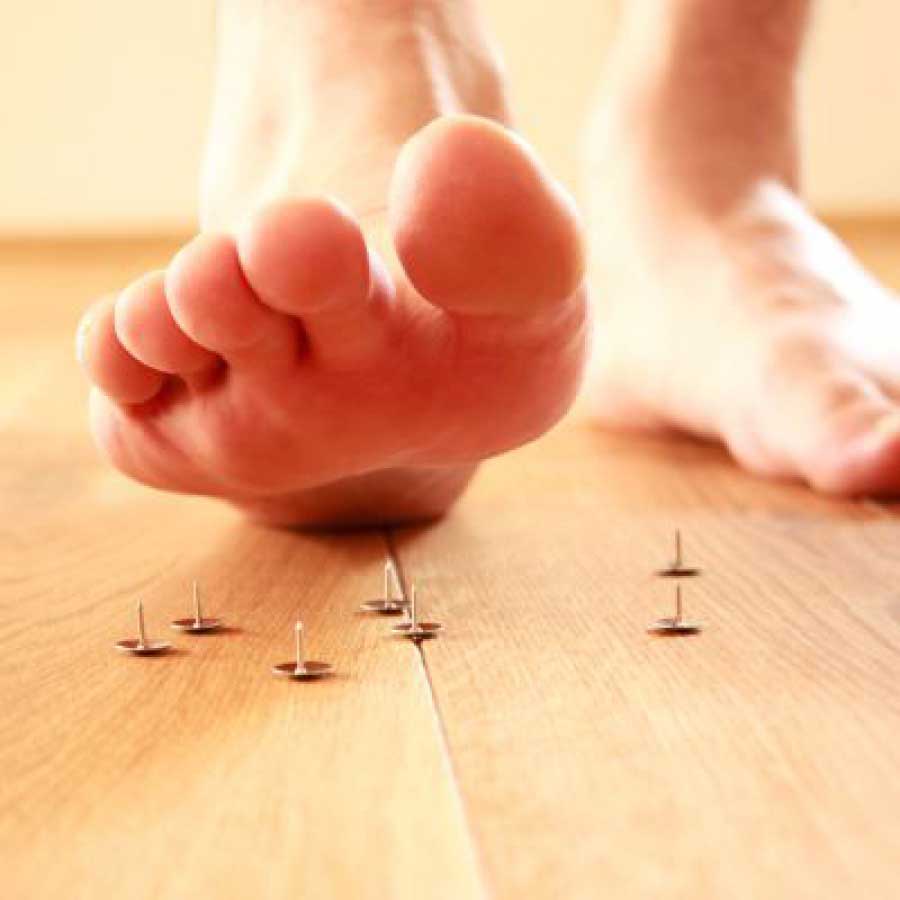
Uncontrolled diabetes can even lead to an inability to feel cuts or sores, and this might even lead to infection. Untreated infection might even lead to limb amputation if not taken seriously.
Diabetic neuropathy currently has no known cure. Treatment aims to :-
- Slow progression :- Great blood sugar management might try and work on a portion of your ongoing symptoms. Your medical care supplier will sort out the best objective reach for you in light of elements including your age, how long you’ve had diabetes, and your general wellbeing. Other significant ways of slowing or preventing neuropathy from returning more regrettable incorporate keeping your blood strain to normal, keeping a sound weight, and getting standard active work.
- Relieve pain :- Numerous prescription meds are accessible for diabetes-related nerve pain, yet they don’t work for everybody. While considering any drug, converse with your health care supplier about the advantages and conceivable incidental effects to find what could turn out best for you. A portion of these medications can likewise be utilized with pain-easing drugs, for example, medicine accessible without a prescription. For instance, you might track down help from acetaminophen (Tylenol, others) or ibuprofen (Advil, Motrin IB, others), or a skin fix with lidocaine (a desensitizing substance).
- Manage complications and restore function :- To oversee complications, you might require care from various trained professionals. These may incorporate an expert who treats urinary plot issues (urologist) and a heart-trained professional (cardiologist) who can help prevent or treat complications.
Outlook
Diabetic neuropathy causes nerve damage that occurs in people who have constant high diabetes. People suffering from diabetic neuropathy tend not to feel injuries on the feet. Thus, regular inspection of the feet is necessary to avoid undetected infection and the possible loss of limbs. Lifestyle changes are essential in reducing the chances of worsening symptoms of diabetic neuropathy.
People Also Read :
If you or anyone is suffering from diabetic neuropathy, our expert providers at Texas Specialty Clinic will take care of your health and help you recover.
Call us at (469) 545-9983 to book a telehealth appointment for a home check-up.

